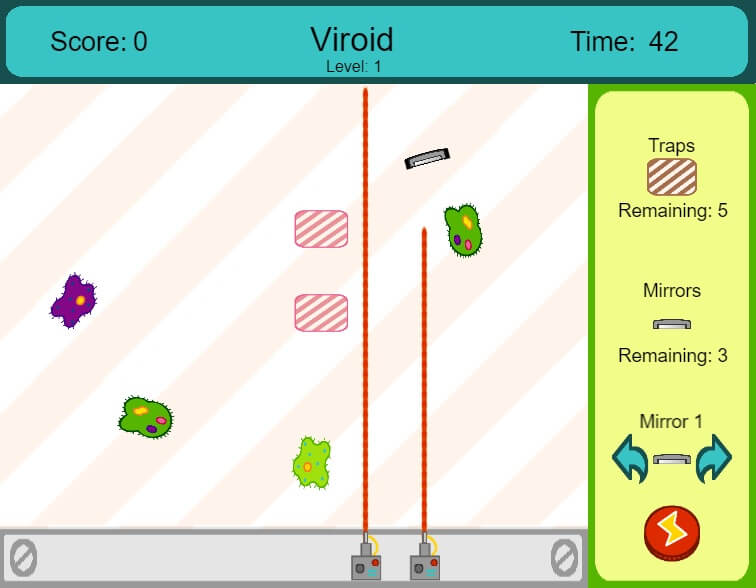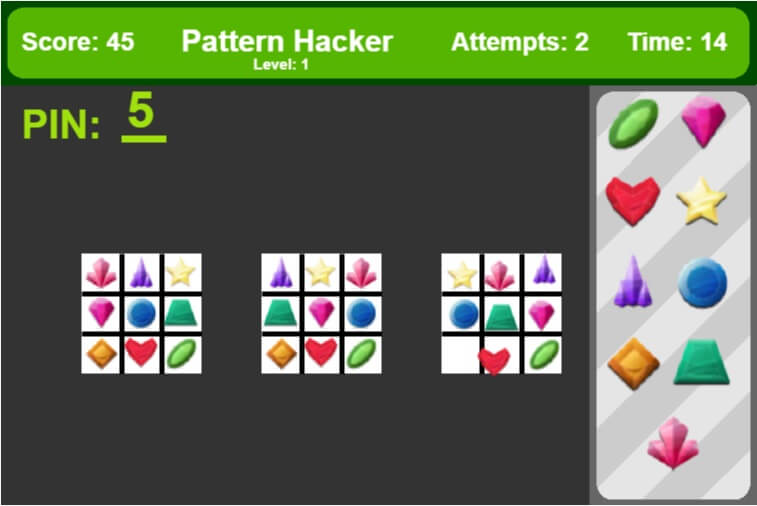Students in Athabasca University's Master of Science in Information Systems program and research assistants have the opportunity to contribute to gaming-based research project
When we think of an online game platform, we often think of the kinds of games that distract us and prevent us from reaching our educational goals. But 2 Athabasca University (AU) professors saw the potential for online games to do the exact opposite.
Dr. Sabine Graf and Dr. Maiga Chang from AU's Faculty of Science and Technology both have an interest in the "gamification of learning" and the positive impact it can have on student success.
"Gamification means basically taking those game elements into a different context-in this case, into the educational context," Graf said. "We're combining games with education, and the goal is to make it more fun."
With the help of dozens of research assistants and graduate students in the Master of Science in Information Systems program, they have created the free OMEGA+ platform to help learners develop their metacognitive skills through gaming. This in turn can help students become better learners.

What are metacognitive skills?
Metacognitive skills help us learn by being aware of our thought processes, understanding patterns, and solving problems.
OMEGA+ provides opportunities for users to develop several of these skills, including associative thinking and reasoning (the ability to connect seemingly unrelated ideas of concepts), planning and organization, and accurately evaluating your own work. And the higher the education level, the more important these skills become.
"From my experience when I'm teaching, and from the literature, we found that those metacognitive skills are sometimes a bit of a problem," Graf said. "That's why we came up with the idea to help students improve those skills, which then makes it easier for them to learn."
While challenges with metacognitive skills aren't necessarily anything new, Graf and her colleagues are applying new technology to help solve it.
A teaching tool in more ways than one
The main goal of OMEGA+ is to help learners develop their metacognitive skills, but Graf said a secondary objective of the project has been to provide students more opportunities to work with each other.
The project in its current form includes the work of dozens of graduate students who have contributed over the years either as research assistants, or as students completing a thesis or final project involving the platform.
"I think having that final project, or even a research assistantship, where they work with others is a really important experience," Graf said. "In my group I have tried over the past several years to focus on providing those types of opportunities."
Students who take advantage of these opportunities to work collaboratively across disciplines have said the experience of working on OMEGA+ has been valuable.
For any student or research assistant who is working, this is a really nice place to test your chops.
Jihan Chowdhury, OMEGA+ research assistant and Master of Science student
Master of Science final project
When Patrick Corbett (Master of Science in Information Systems '20) was in the program, he worked full time and said he came to AU because the flexible program schedule let him earn a degree without taking time off work.
His initial plan had been to complete the program via the essay route, with his work focusing on how individual gaming styles relate to individual learning styles. When he heard about the OMEGA+ project, though, he changed direction and for his final project he designed several of the games included in the platform.
His project began with a review of existing research studies about metacognitive skills, and what methods could be used to improve them. He investigated different aspects of game-based learning, and how improvement methods are related to different game components. From there, he designed several games that could support the project's goals.
"I would create different game design documents-from a higher-level perspective how they should be created, what kind of challenges and puzzles can be used, and other components that could in theory improve those skills," Corbett said.
The experience of attending school at AU and working in a virtual environment was helpful when he was working at home early in the COVID-19 pandemic-working online had become "second nature" to him.
But the experience also helped him to develop his career. By the time he had completed his degree he had been promoted at work.
"I could use what I gained from Athabasca University to help me do better in my career, which then ultimately allowed me to apply for higher positions because I now have a great breadth of experience," Corbett said.

Research assistant opportunities at AU
Students who don't want to do a project or thesis based in OMEGA+ can also contribute to the project and gain valuable experience by working as a research assistant. Available research assistant positions at AU often include posts from Faculty of Science and Technology researchers working on projects like OMEGA+.
Jihan Chowdhury, a current student in the MScIS program, was hired as a research assistant during the early stages of the project. His role mostly involved coding.
"We were hired to make the project responsive on mobile, without breaking the code base of the desktop version," he said.
He later took on a second research-assistant position with the project, focused on testing how OMEGA+ could work within an Amazon Web Services environment.
Chowdhury said the opportunity to collaborate with other students, and also working alongside interns from the Mitacs Globalink program, was an experience that has helped a lot in terms of his career.
He added coding in this kind of environment helped him to test his skills. Whereas private companies often have a higher tolerance for risk; by contrast, in an academic setting professors often rely on limited research grants.
"For any student or research assistant who is working, this is a really nice place to test your chops," he said.
Personalization and learning analytics
While developing the games and the platform itself has been the focus of the work on OMEGA+ so far, Graf said now that the game has launched she and her team are thinking about other opportunities to use this platform for further research.
This could include looking at how to personalize the experience to suit each user's educational needs, or how to use learning analytics to further improve OMEGA+. For example, by predicting when a learner is about to drop off, introducing some sort of intervention could encourage them to continue, such as an in-game bonus.
And in this process, there will be many opportunities for MScIS students to be involved in this work-and even suggest research topics of their own.
"This is not the end, this is the start," Graf said. "We're going in many directions. If students are interested, they can reach out to me, and we can talk about topics."